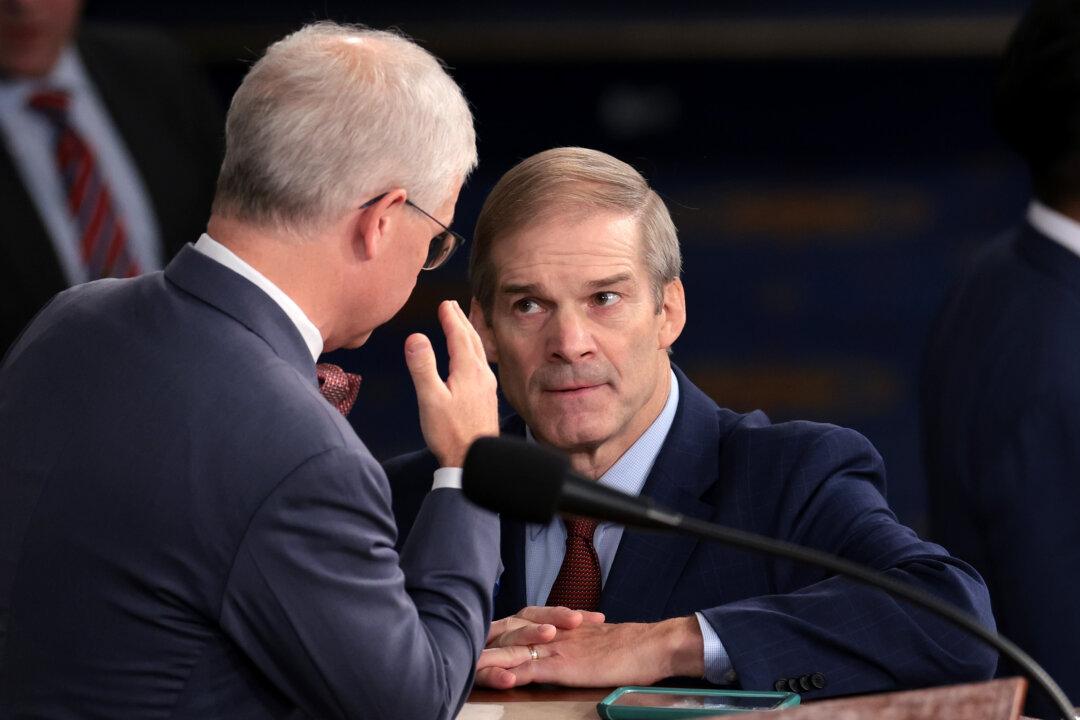House Republicans are debating whether to introduce a motion to temporarily empower Speaker Pro Tempore Patrick McHenry (R-N.C.) to conduct House business until January.
The move is backed by Rep. Jim Jordan (R-Ohio), who chose to do so after his candidacy for the speakership lost ground in a second ballot cast on Oct. 18, lawmakers confirmed. A third ballot that had been scheduled for Oct. 19 was canceled.





